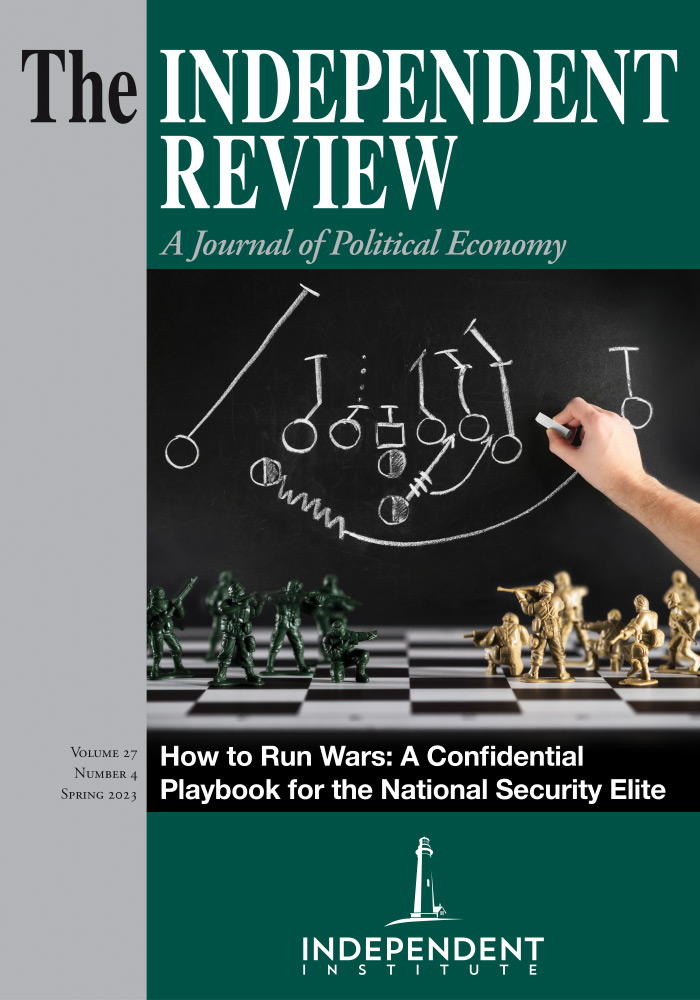John Locke’s justification for the original acquisition of private property includes the stipulation that ownership not result in the spoilage and waste of resources. However, the fear that appropriation will lead to waste is invalid, as it presupposes “waste” can be identified without reference to opportunity costs. Opportunity costs are revealed in action, and the prices that allow us to assess costs in a complex society with reference to others’ preferences and knowledge are formed through experimentation and exchange, which are grounded in the existence of private property.
Art Carden is a Research Fellow at the Independent Institute and an Associate Professor of Economics at Samford University.
Rosolino A. Candela is a Research Fellow at the Independent Institute and Program Director, of Academic and Student Programs and Senior Fellow in the F.A. Hayek Program for Advanced Study in Philosophy, Politics, and Economics at the Mercatus Center at George Mason University.
| Other Independent Review articles by Art Carden | ||
| Fall 2023 | Thomas Sowell: Uncommon Perspectives on Culture, Society, and Economics | |
| Spring 2022 | “The Danger of Deplorable Reactions”: W. H. Hutt on Liberalism, Populism, and the Constitutional Political Economy of Racism | |
| Summer 2017 | We’ll Never Be Royals, but That Doesn’t Matter | |
| [View All (5)] | ||
| Other Independent Review articles by Rosolino A. Candela | ||
| Spring 2024 | Yoram Barzel: Property Rights, Political Economy, and the Reorganization of Economic Analysis | |
| Fall 2023 | Israel M. Kirzner and the Entrepreneurial Market Process: An Appreciation | |
| Fall 2021 | Steve Pejovich’s Insights into Property Rights, Capitalism, Socialism, and Freedom | |
| [View All (5)] | ||










